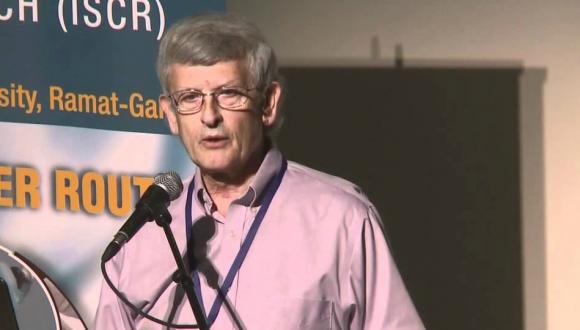Development of Cancer Treatments Integrating Radiotherapy or Electrochemical Ablation and Immunotherapy
Prof. Yona Keisari, Ph.D.
Department of Clinical Microbiology and Immunology
Cancer is currently the most devastating chronic disease affecting humankind. Today solid malignant tumors are mainly treated by surgery and/or radiotherapy to eradicate the local primary lesion, and chemotherapy, that is administered mainly to destroy remaining local or distant malignant cells. In spite of the advancement in preventing and treating cancer, morbidity and mortality remain high, especially in cases when tumors are highly metastatic, or cannot be completely removed. The main goal of our research projects is to develop in situ tumor ablation treatments of primary tumors and incorporate them with systemic chemotherapy and immuno-stimulatory agents, into combined treatment protocols.
In order to achieve efficient primary tumor ablation we developed two novel and powerful treatment modalities for solid cancer, which can be used instead or in combination with surgery. The first treatment, developed with Prof. Rafi Korenstein (Dept. Physiology & Pharmacology), is base on the use of intratumoral unipolar pulsed electric currents for the ablation (ECTA) of solid primary tumors. ECTA can be enforced by the concomitant use of chemotherapeutic agents in the treatment of tumors. The second cancer treatment, developed with Prof. Itzhak Kelson (School of Physics & Astronomy), is based on insertion into the tumor of radioactive wires that spread in the tumor alpha emitting atoms and can also be augmented by chemotherapy.
Our teams proved that these treatment modalities effectively destroy primary tumors, and reduce the metastatic load in experimental animal and human cancer models of melanoma, breast, colon, prostate, pancreas, lung, and squamous cell carcinomas. We found that in situ ablation of primary antigenic tumors led to the activation of immunological reactions, destroying remaining malignant cells in the primary tumor as well as in distant metastases.
Immunopharmacological methods aimed to stimulate the patient’s immune response against the cancer after local tumor ablation can make use of several approaches and we currently study the following:
- Immunostimulation by adjuvants such as the oligonucleotides, CpG, which enforce weak immune reactions.
- Inhibition of immunosuppressive mechanisms such as T-regulatory and Myeloid Derived Suppressor cells (MDSC).
- Combination with inhibitors of immunological checkpoints such as anti CTLA-4 or anti PDL1/PD1.


